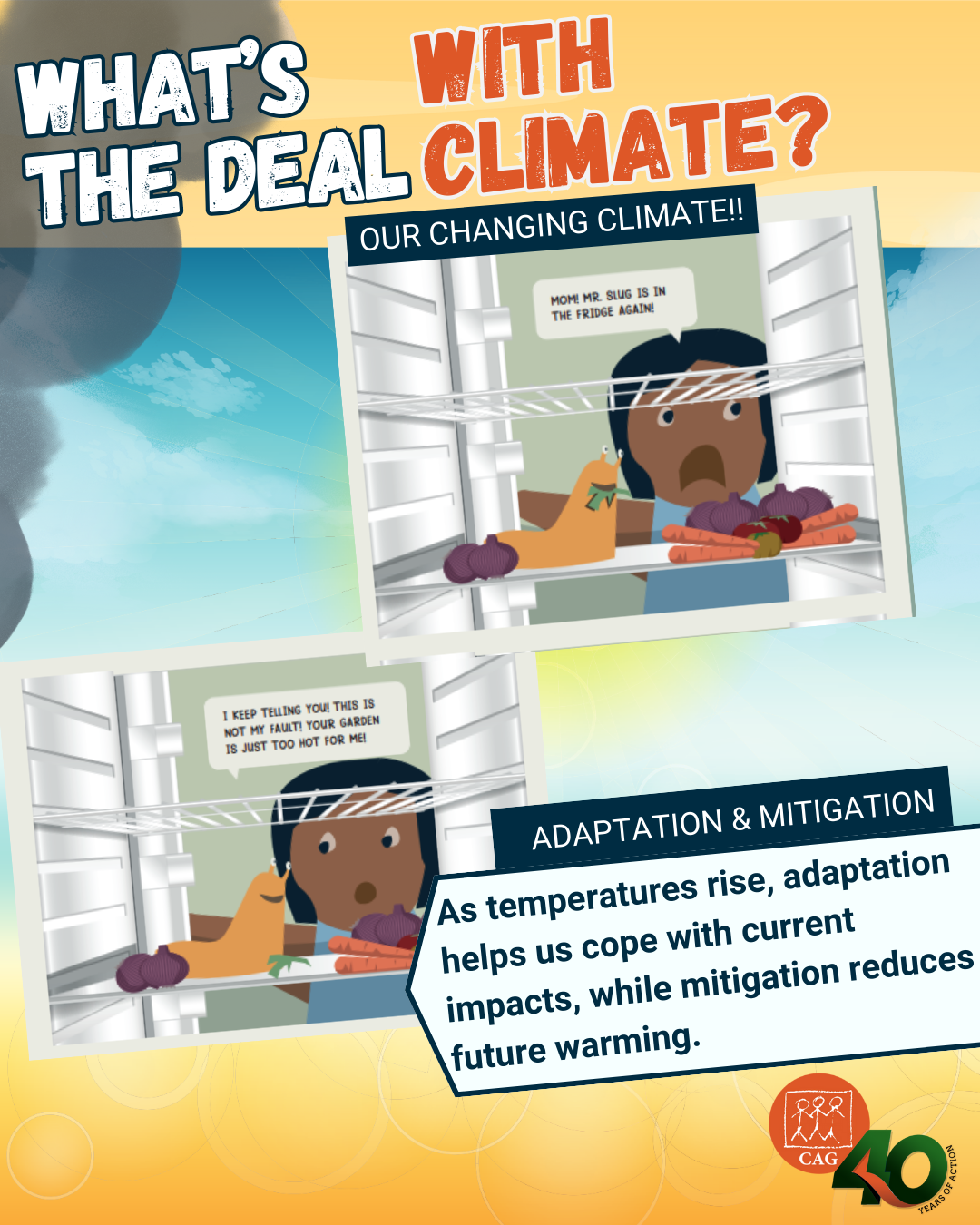Workshop on aluminium cookware supply chain analysis and lead mitigation strategies - Comprehensive report
Date: 18 December 2024
Venue: Hotel Rain Tree, R.A.Puram, Chennai
Date: 18 December 2024
Venue: Hotel Rain Tree, R.A.Puram, Chennai
As temperatures rise, people and ecosystems must adjust to new conditions, from changing crops to storing food differently. #Adaptation helps us cope with impacts, while #mitigation reduces emissions to prevent future warming. Both are essential to living with #ClimateChange

As the world enters 2026, this edition of St(o)ppwatch reflects on the climate signals of 2025, from record heat and environmental stress to renewable energy gains, grassroots action, and solutions that can still shape a more resilient future.
Event Date
Address
In Map
Event Date
Address
In Map
Event Date
Address
In Map
Event Date
Address
In Map
CAG, in collaboration with Pure Earth, conducted a study to analyse the supply chain of aluminium cookware in selected locations of Tamil Nadu. The project aims to highlight the issues of lead contamination within the aluminium cookware industry in the region.
Contamination of lead beyond permissible levels in aluminium utensils has been a festering problem in low- and middle-income countries, with the effects marked among the low-income population. Globally, several studies have indicated that children exposed to lead show stunted brain development, lower IQ, and attention issues. These have long term consequences including underperformance in school. A recent study in Bihar, India, found that 90% of homes with lead-poisoned children had aluminium cookware whose lead content exceeded prescribed limits, indicating a strong link between lead poisoning and the use of such cookware.

Kavipriya's work at CAG involves research that contributes to the accessibility, safety and sustainability of urban transport. She views roads as public spaces where the collective aspirations of a community can come alive rather than just as lanes that move vehicles from point A to point B. To her, structures of mobility can be physical manifestations of social hierarchies that can reinforce or challenge socio-economic relationships. She advocates for design that puts people first and prioritises the environment over automobiles. Her academic background lies in the field of Economics and Women and Gender Studies.
Snacks that are fried in oil that's heated again and again are unsafe. Each reheating breaks the oil down, forming harmful compounds like trans fats and free radicals. These damage blood vessels, increase bad cholesterol, strain the liver, and raise the risk of heart disease. The food may taste the same, but the oil becomes less safe each time it’s reused. Good health is about avoiding foods prepared from reused cooking oil, limiting deep - fried foods and choosing fresher, home-cooked options whenever possible. Small, steady choices keep your body protected.